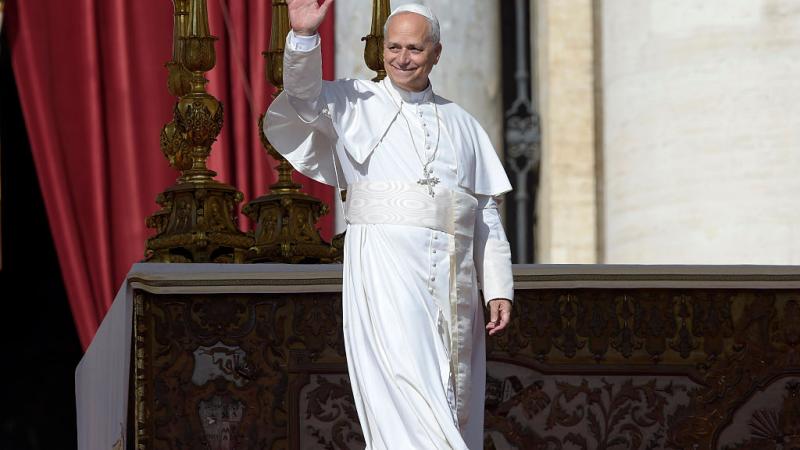Air Force improperly prejudges requests for COVID vax mandate religious exemptions: source
In reviewing religious accommodation requests, the Air Education and Training Command is relying on analysis tool that reaches blanket predetermination that the vaccine is the "least restrictive means" by which to further the service's "compelling government interest."
In reviewing requests for religious exemptions from the military's COVID-19 vaccine mandate, the Air Force's Air Education and Training Command (AETC) is allegedly using a document that effectively denies all requests, in defiance of a legal standard affirmed in a recent federal court ruling.
AETC is the approval authority for religious accommodation requests (RARs) for military members assigned to the 13 AETC Air Force installations.
Under the Religious Freedom Restoration Act of 1993, as the AETC analysis document notes, "the government may not burden an individual's religion unless the requirement furthers a compelling government interest with the least restrictive means."
In reviewing service members' RARs for the COVID vaccine mandate, however, AETC is using a medical "least restrictive means" analysis tool that improperly reaches a blanket, one-size-fits-all predetermination that the vaccine is the least restrictive means by which the Air Force can achieve its compelling government interest, argues a source who obtained the document.
The Air Force defines it compelling government interest as "mission accomplishment," an interest that "includes military readiness, unit cohesion, good order and discipline, and health and safety for both the member and the unit."
This AETC analysis tool is similar to the Navy's 50-step standard operating procedure streamlining RAR denials that a federal judge ruled last month was unconstitutional when he granted a preliminary injunction in favor of Navy SEALs seeking religious exemption from the military vaccine mandate.
The risk-mitigation document, or analysis tool, notes that the Defense Department's policy is "to accommodate religious practices 'which do not have an adverse impact on military readiness, unit cohesion, good order and discipline, or health and safety.'" (Underscoring in the original.)
Air Force instruction "notes that if a compelling governmental interest exists, the government must consider whether vaccination is the least restrictive means necessary to achieve the compelling interest," according to the document.
The Air Force defines "least restrictive means," the document explains, as "an individualized determination that, in realizing its compelling interest, the government could not have employed means that were less burdensome on the military member's religious liberties."
Instead of analyzing the restrictiveness of alternative mitigation strategies, the Air Force focuses its analysis on the expected efficacy of a series of alternatives.
It is therefore "very important," according to the analysis "to understand if preventive measure(s) would be as effective as vaccination (with other continued mitigation strategies) in furthering the compelling government interest." (Underscoring in original.)
While noting that the data for its analysis predates the Omicron variant, the AETC document reports: "Vaccine efficacy (vaccine performance in clinical trials) against infection with mRNA vaccines in clinical trials is 91-93% at 6 months after primary series; however, observation studies may indicate lower vaccine effectiveness (vaccine performance in non-ideal conditions/in the population)."
Using information that was current as of November, the document reports that COVID vaccines were found to be 50-82% effective against initial infection and that those who are vaccinated recover from COVID days faster than those not vaccinated.
While the analysis acknowledges that vaccinated individuals can still transmit COVID, it says that vaccinated military members "are much less likely" to contract severe disease, be hospitalized, or die from the Delta variant.
The document also analyzes the effectiveness of mask wearing, the combination of both vaccination and masking, natural immunity, weekly testing, social distancing, outdoor work and full-time telework, in addition to the military's mitigation measures prior to the availability of the vaccine.
Besides following the Centers for Disease Control and Prevention's recommendation of being vaccinated and masking in areas of high transmission and within six feet of a COVID-infected person, the analysis finds that all other mitigation efforts are less effective.
The analysis dismisses alternative mitigation strategies such as working in isolated settings or full-time teleworking as less effective than vaccines. "Despite working in an isolated environment by fulltime [sic] teleworking, an individual still has to interact with others in the local community, family, and friends," the document notes. "Thus, working in an isolated environment removes risk from viral transmission to others at work, but it does not eliminate risk of infection and disease complications to the individual to include long-COVID symptoms, hospitalizations, ICU admissions, and deaths."
The document also reviews the mitigation measures employed by the military prior to the introduction of the vaccines.
"DoD mitigation measures," it reports, "have included mask wear, hand sanitizer usage, COVID-19 testing, deep cleaning, social distancing, curtailed social gatherings, limited building occupancy, decrease/cessation of travel (TDYs), restriction of movement/quarantine/isolation periods (around leave, TDY, PCS, deployment, exercises, COVID-19 exposure, and COVID-19 infection), limiting exercises, and telework."
"Despite these extensive measures, eleven percent of service members have been infected," it claims. "The relatively young and healthy US service member population is not immune to long-term complications or deaths related to COVID-19. As of 16 Nov 21, over two thousand service members have been hospitalized for COVID-19 related illness and 75 service members have died."
Early last year, however, Maj. Gen. Jeff Taliaferro, Joint Chiefs of Staff vice director for operations, told Congress that the military "already demonstrated over the last year that we're fully capable of operating in a COVID environment" prior to the availability of the vaccines.
The AETC Public Affairs Office didn't immediately respond to a request for comment.
The Air Force previously told Just the News, "The Department of the AF does an individualized least restrictive means analysis for each case."
However, as reported earlier, in response to an Air Force officer's RAR, the service said that "vaccination is the least restrictive means of furthering the military's compelling governmental interest."
















